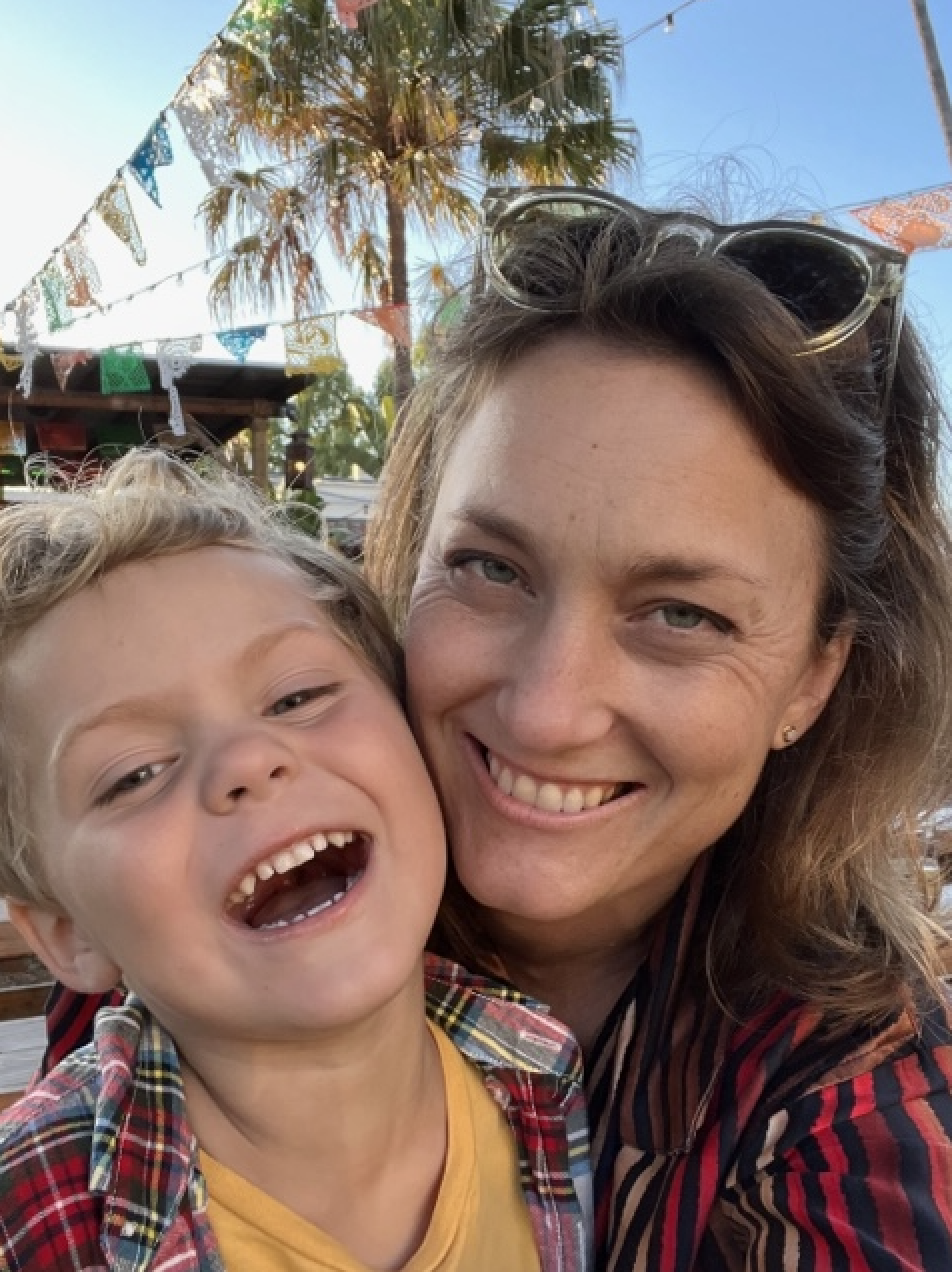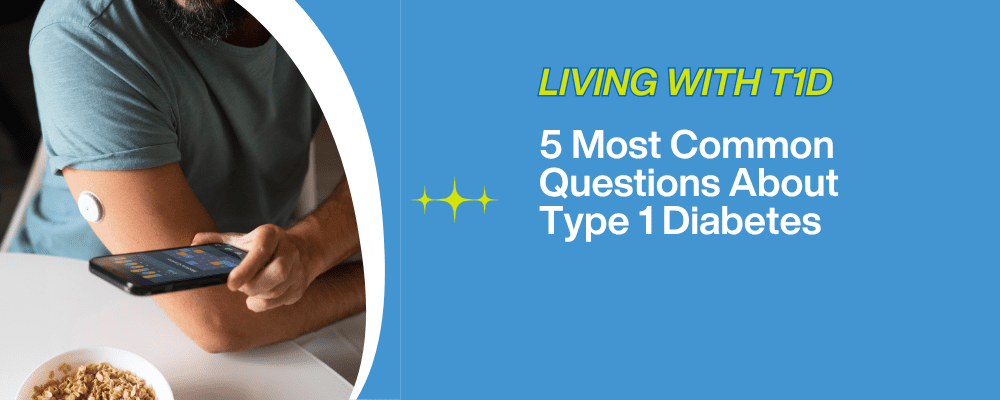Family Support in Type 1 Diabetes Care
Navigating type 1 diabetes (T1D) with a child requires not just medical knowledge but also a deep understanding of emotional and practical support. In this blog we address the most common concerns faced by parents, providing practical advice and emotional reassurance.
For a broader perspective on how T1D affects family dynamics and the crucial role of caregivers, explore our companion blog, “Unsung Heroes and Family Strength in T1D Care.” Additionally, we encourage you to engage with our #BondedBeyondBlood social media campaign at Diabetes Research Connection (DRC), where we celebrate the strength and support found within the T1D community. Join us in sharing stories and connecting with families who understand the journey you’re on.
Navigating T1D – A Parent’s Perspective
As we dive into some essential questions, each one is designed to address the unique challenges and situations that parents of children with T1D face daily. From handling day-to-day care to navigating social situations and long-term health management, these questions will help illuminate the path forward and provide actionable insights. Whether you’re adjusting to a new diagnosis or looking to refine your approach as your child grows, the answers to these questions aim to support and empower you and your family.
DRC Board Member Allison Orechwa shares her unique insights. Having lived with T1D since childhood and navigating her son Mac’s diagnosis at age 4, Allison brings a deeply personal perspective to our discussion.

How did you first react to your child’s T1D diagnosis, and what steps did you take immediately after?
My reaction was a mixture of disappointment and strength. Although I knew my children had increased risk given my own diabetes, I was not prepared to hear that Mac’s autoantibody results meant he would most likely be diagnosed soon. I cried, shared the news with my husband and daughter, and texted our families.
The next thing I did was dive into the scientific literature to learn about any options for delaying diagnosis. I wanted to be armed with information to protect my little son. My family constantly reminded me that we are a smart, strong family with the experience and community to get him the best care possible.
What are your daily strategies for managing your child’s blood sugar levels?
Because Mac wears a t:slim pump integrated with the Dexcom G6 sensor, we follow his blood sugar from our phones and via alerts. We track his carbohydrate intake closely, try to pre-bolus for meals, and always carry glucose tabs.
How do you involve your child in their diabetes care, and at what age did you start?
Mac has always been very brave and knowledgeable about the condition. He has watched me manage my own diabetes for his whole life.
Sometimes I whine about it, but I mostly take it in stride. We talk about it constantly and problem-solve together. It also helps to complain about it together.
How do you manage diabetes care during school hours or away from home?
His teachers and health office staff have been great team members. We write the carb counts on his snacks, his teacher pays close attention to his alerts, and the nurses help him bolus from his pump.
Sometimes we have to replace his set or sensor in the middle of the school day, or sometimes we call the school nurse about an issue. But the majority of the time is smooth sailing. We are fortunate to live and work one block from school in case of emergency.
How do you make everyday moments special despite the challenges of T1D?
We live life to the fullest and don’t let T1D hold us back. Mac is involved in sports, theatre, camps, and other activities.
What resources or support groups have been most helpful for you as a caregiver?
Parent support groups, both online and in person, are great for new T1D families navigating the new landscape. Connecting on an individual level with other T1D parents at school or in the neighborhood is a must. I have a couple of text chains with other T1D parents, and sometimes we just complain to each other about the constant concerns and burden – it’s therapeutic.
What advice would you give to a new T1D mom or dad facing a diagnosis for their child?
While you are mastering the disease yourselves, start sharing basic information about it with your friends and family. Create a tip sheet for anyone watching your T1D child that includes their doctor’s phone number, emergency protocols, and factors that raise and lower blood sugar. For more comprehensive strategies, check out our previous blog, Looking Beyond Beta-Cells for Management of T1D, which explores innovative approaches to managing Type 1 Diabetes beyond traditional treatments.
Talk to the school health office right away and advocate for accommodations. Don’t feel bad using disability services at fun places like the zoo or theme parks – you and your child are deserving of little perks.
These key questions are crucial for every parent managing a child’s T1D. We hope the answers have provided you with valuable knowledge and strategies to enhance your caregiving efforts.
Closing Insights on Parenting with T1D
As we wrap up this blog we hope these insights have provided guidance and reassurance for all parents managing their child’s T1D. Remember, you are not alone in this journey.
For further reading, check out our companion blog, “Unsung Heroes and Family Strenght in T1D Care” which dives deeper into the roles of caregivers and the impact of T1D on family dynamics. We also invite you to join our #BondedBeyondBlood DRC social media campaign, where we share more stories and resources that celebrate and support the resilience of families like yours. Share your story, connect with others, and find strength in our community as we navigate T1D together.
Here’s a quote from Jen Grove, about her daughter Lauren taking over her own T1D care.
“As a parent of a child with type 1 diabetes, there’s a moment where you just have to trust and have confidence that they can navigate the disease on their own. Lauren’s independence made the transition relatively easy. Since Lauren was diagnosed at 6 years old, versus when she took over her own care in her early teenage years, diabetic technology had already changed dramatically. We continue to learn together about the best ways for her to maintain her health.”




